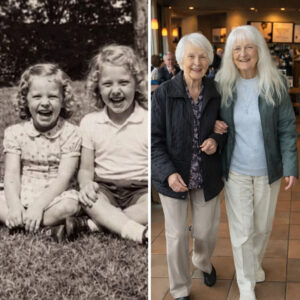The call came after lunch. Grandma Harriet’s voice was steady, but trembling. “Ellis, they’re digging into the hill. Part of it’s our land.” For forty years, their ridge had been quiet—Grandpa Clarence’s oak, Harriet’s stone steps, her summer garden. Now bulldozers roared through it. When Clarence confronted the excavator, the man shrugged. “Talk to the owner.” The owner, Desmond, told him flatly, “Sue me. I’m not moving it.” “It’s just land,” Harriet murmured. “Peace is worth more than dirt.”
But Clarence knew—it wasn’t about dirt. It was about respect. Soon Desmond’s crew poured concrete across their garden. Then neighbor Fletcher called with a grin in his voice: “Let me park my old F-150 right where his driveway crosses your property.” At dawn, Fletcher rolled the rusted truck into place and taped a sign to the windshield:
PRIVATE PROPERTY. TRESPASSERS WILL BE REPORTED. DO NOT TOW. OWNER HAS PERMISSION.
By 8 a.m., the worksite froze. Tow trucks came and left once they saw the survey pins. When Desmond called, fuming, Clarence said calmly, “You’re the trespasser.” Three days later, Desmond caved. “Fine. What do you want?”
“An easement,” Clarence said. “In writing, for a fair price.”
A week later, papers were signed, the check cleared, and Fletcher drove his truck home with a case of beer and Harriet’s thank-you note. Watching from the porch, Clarence said, “If he’d asked nicely, we’d have let him cut that corner for free.” “Some folks only learn respect the hard way,” Harriet smiled. “And some from a well-parked truck.”


